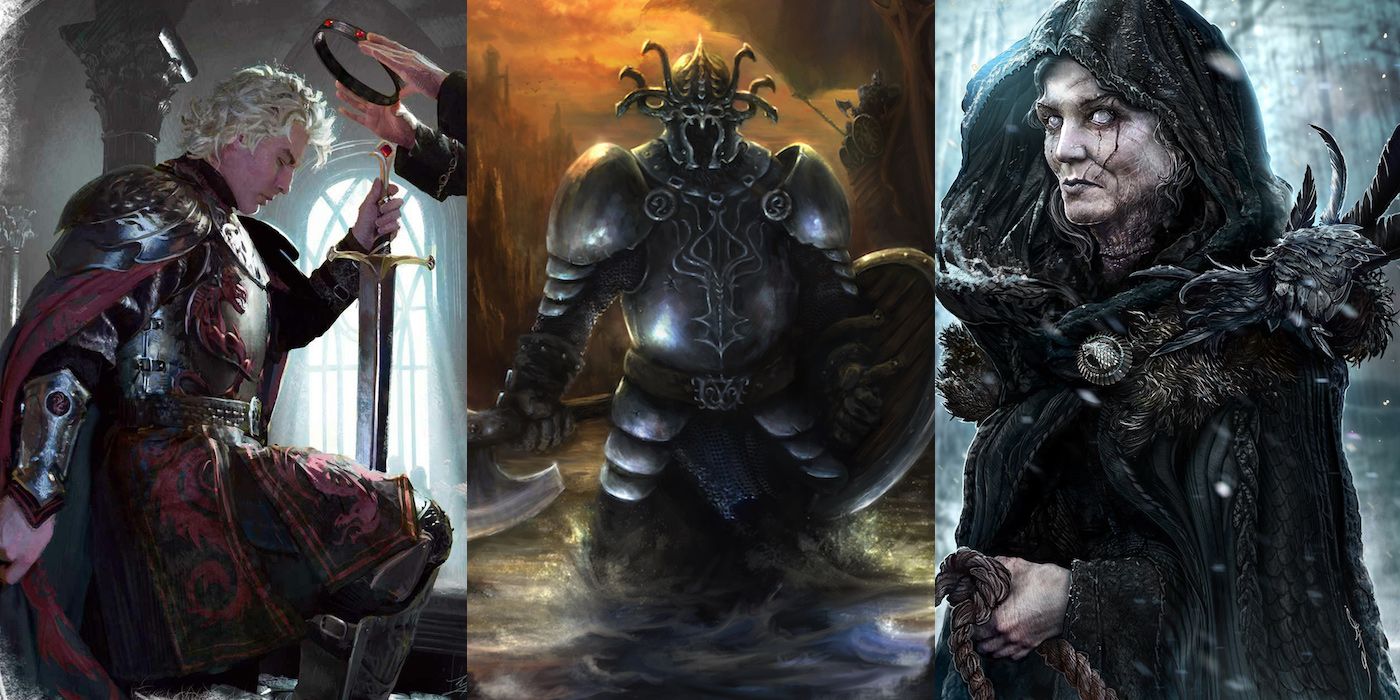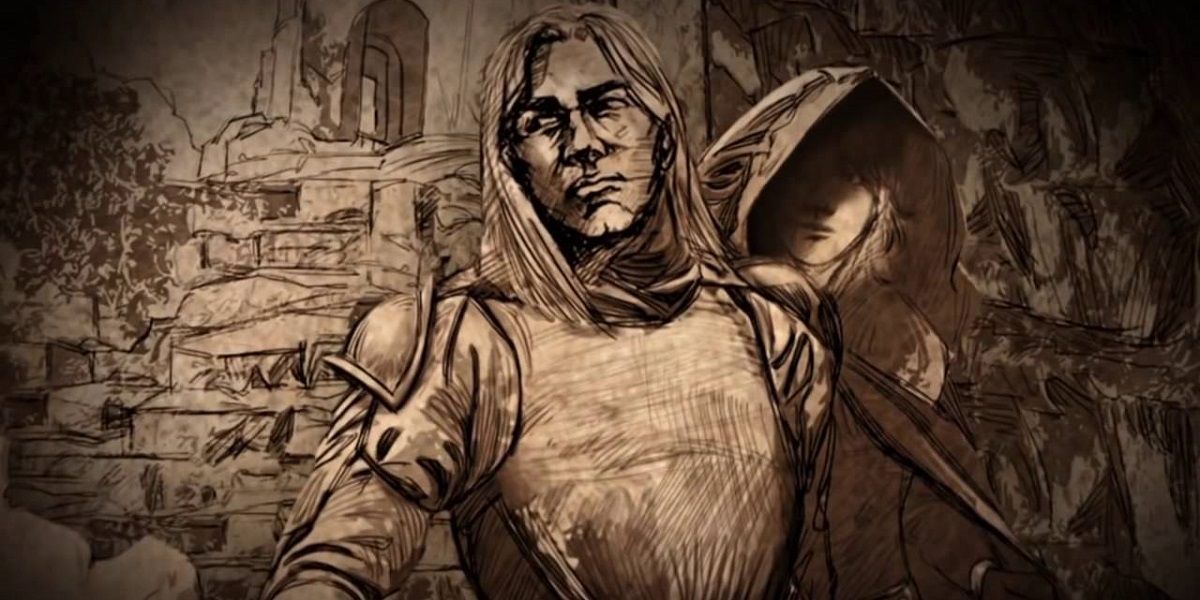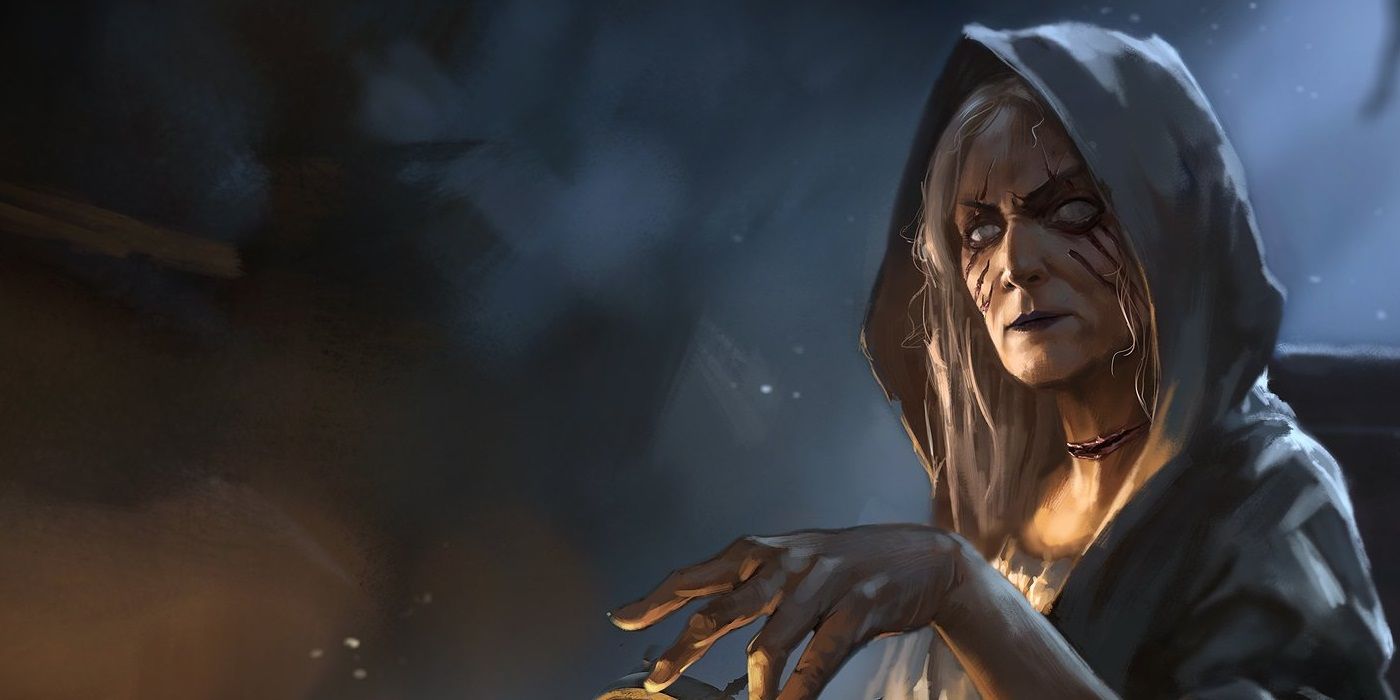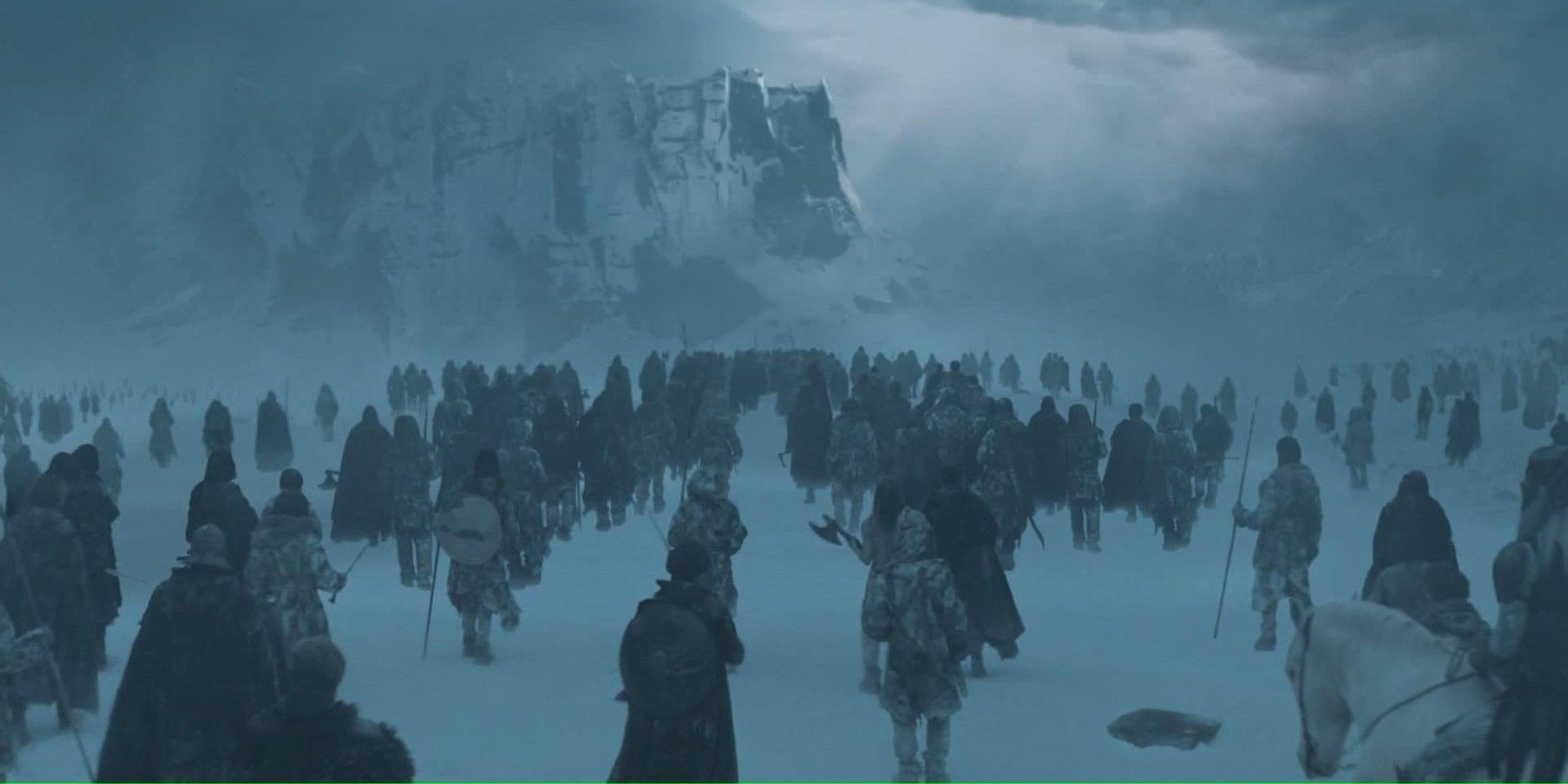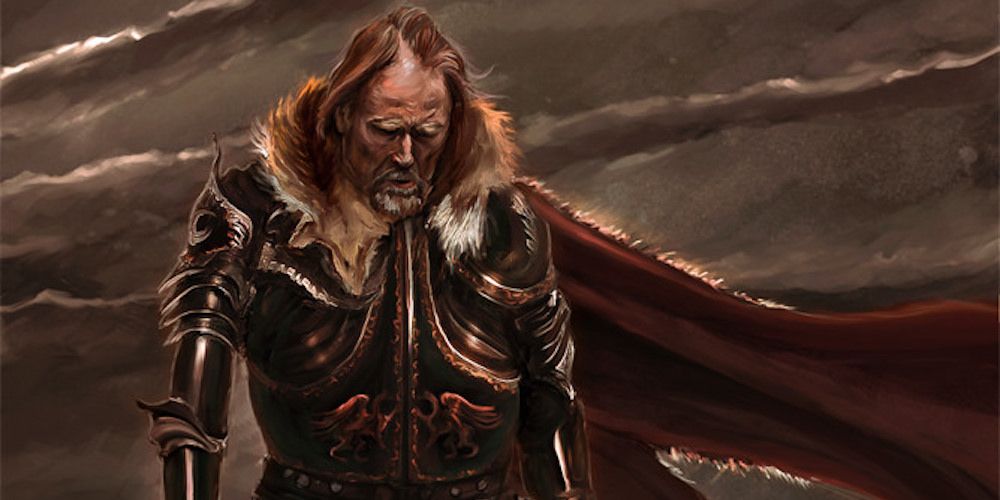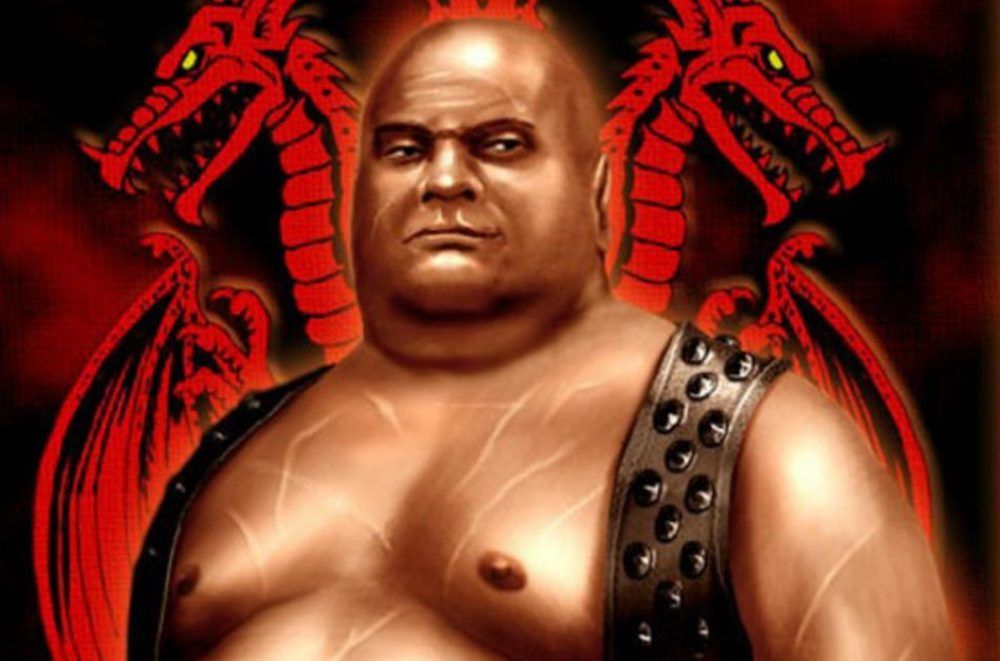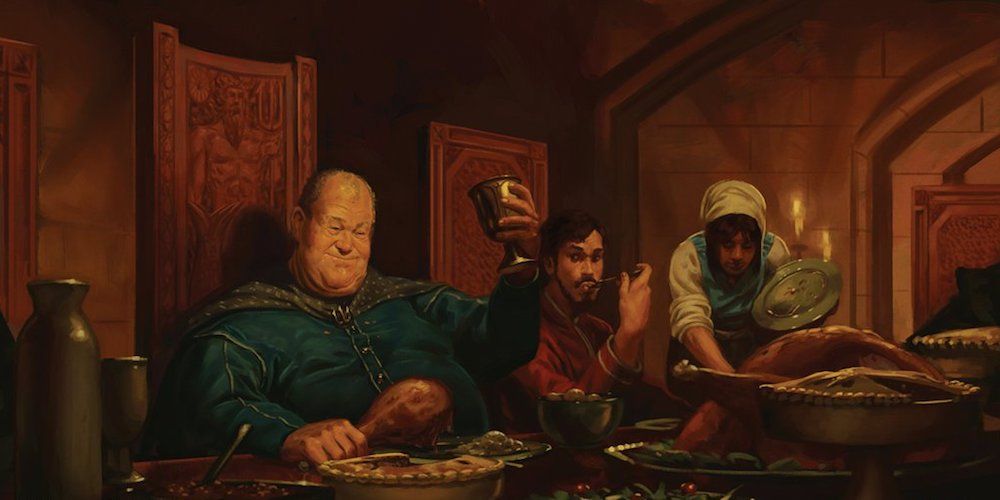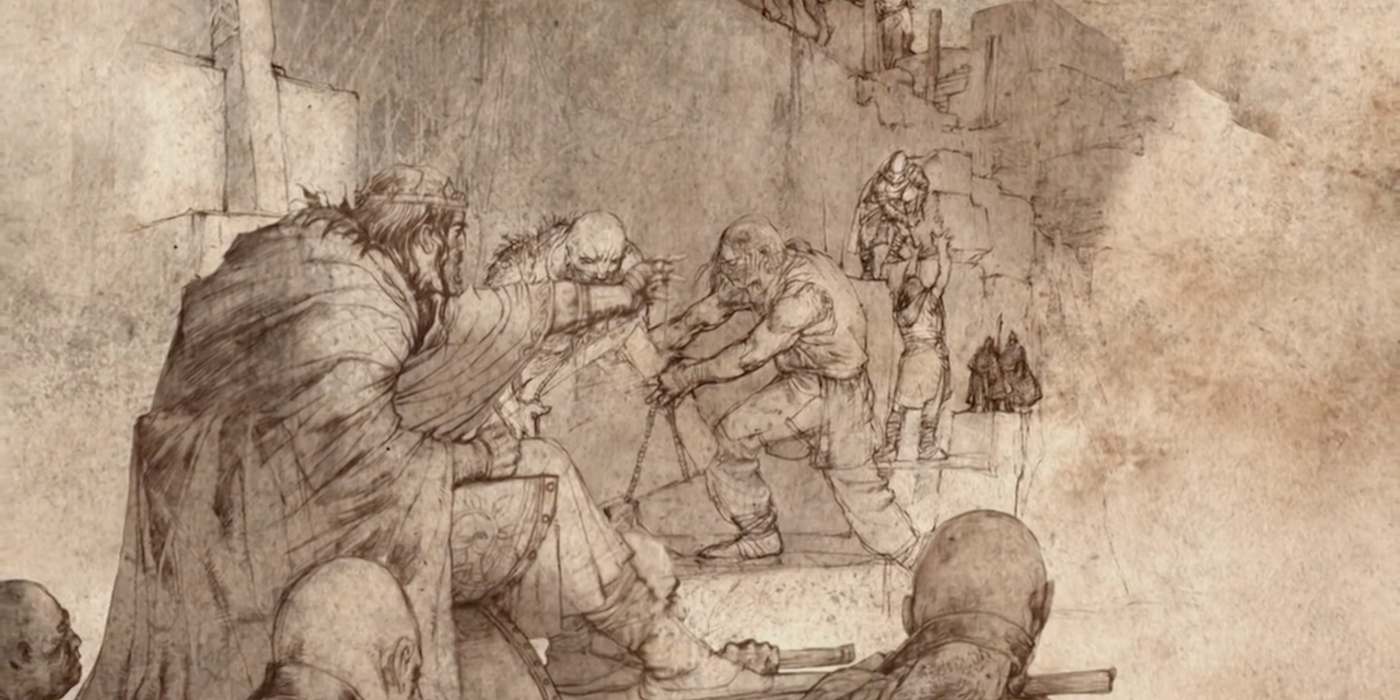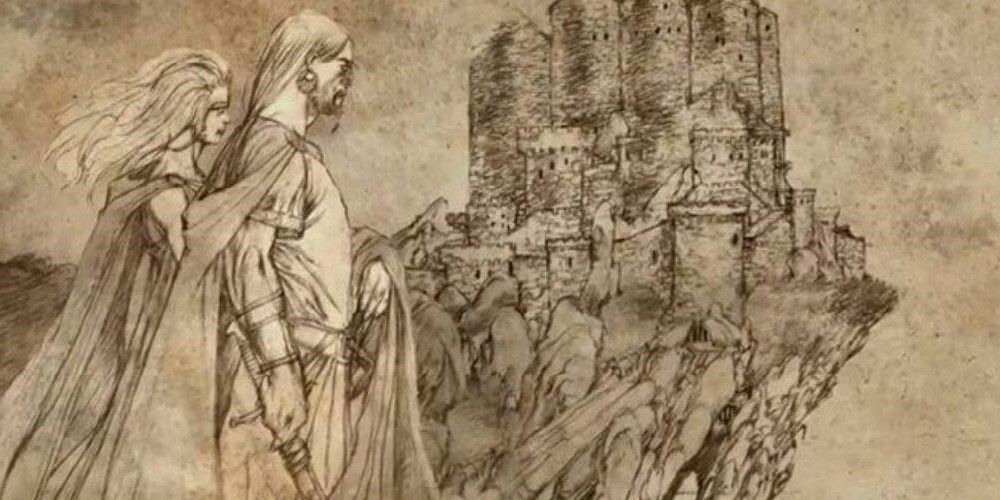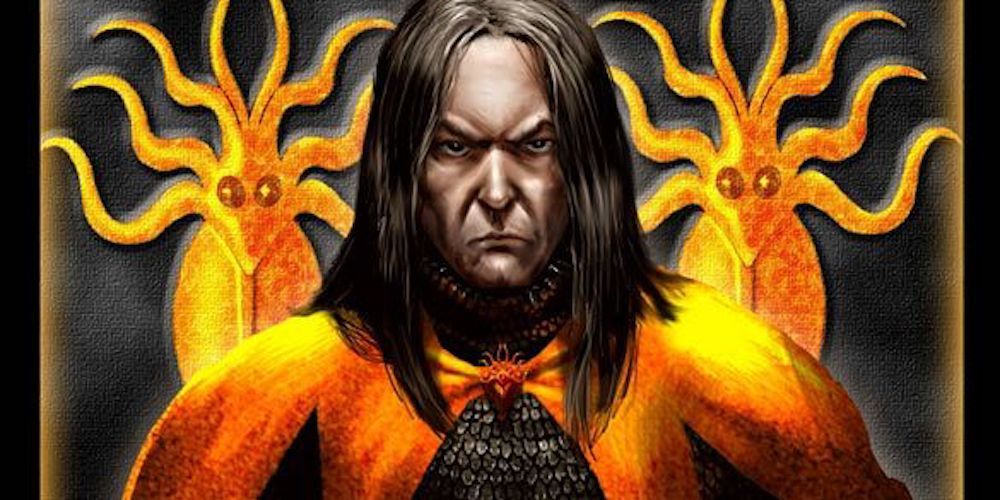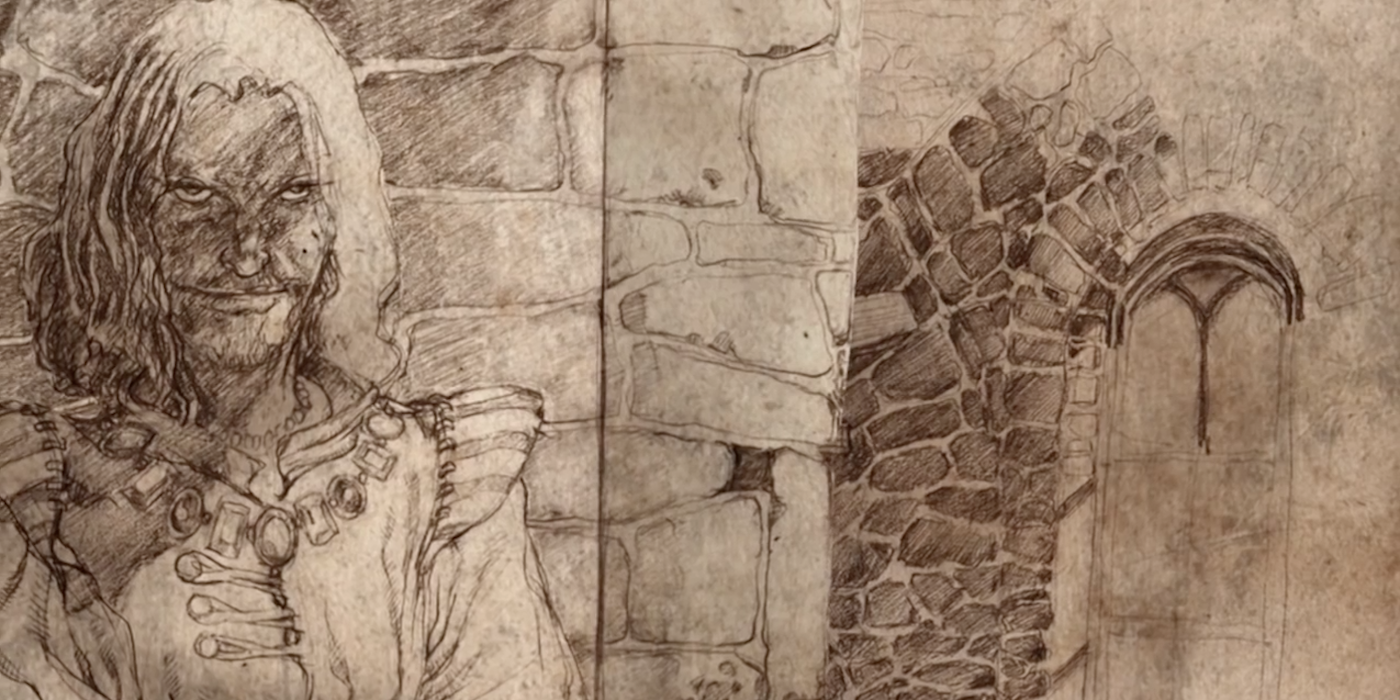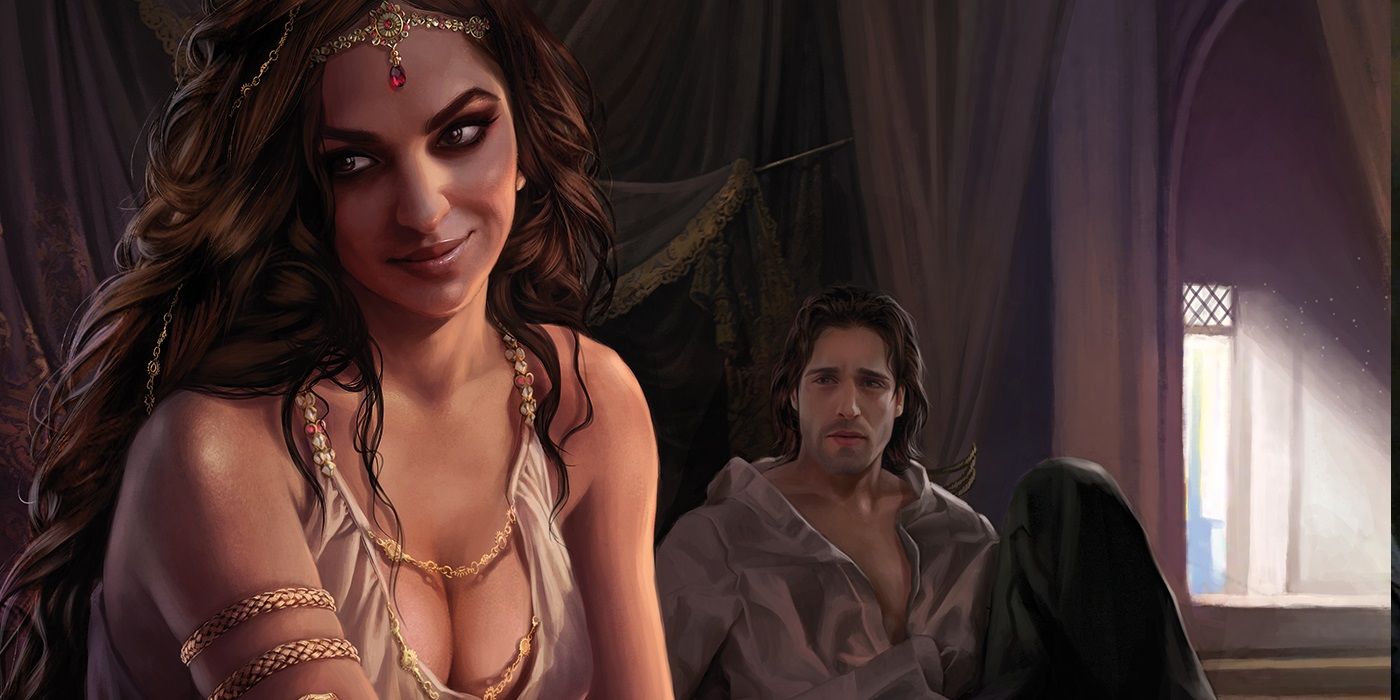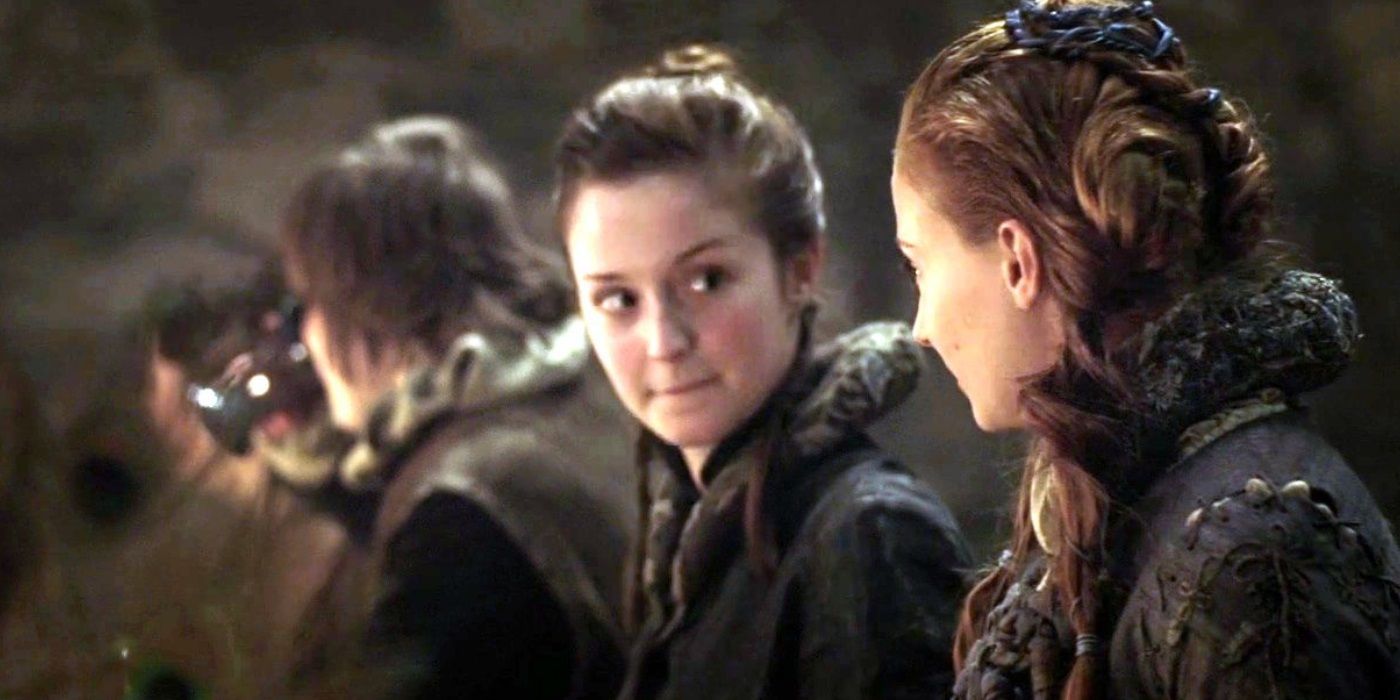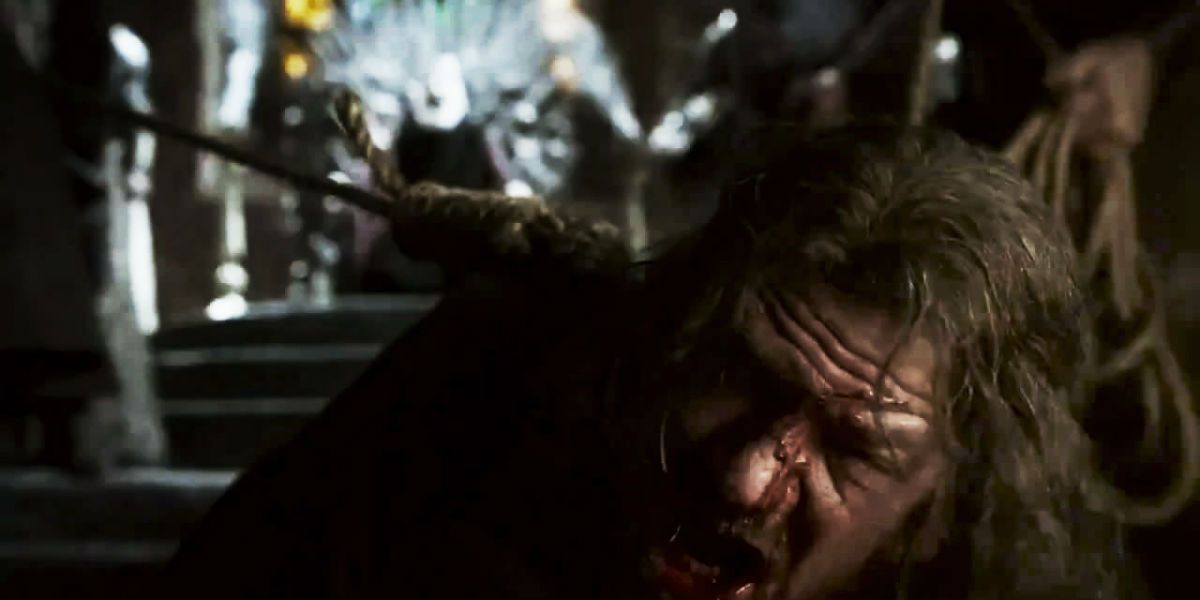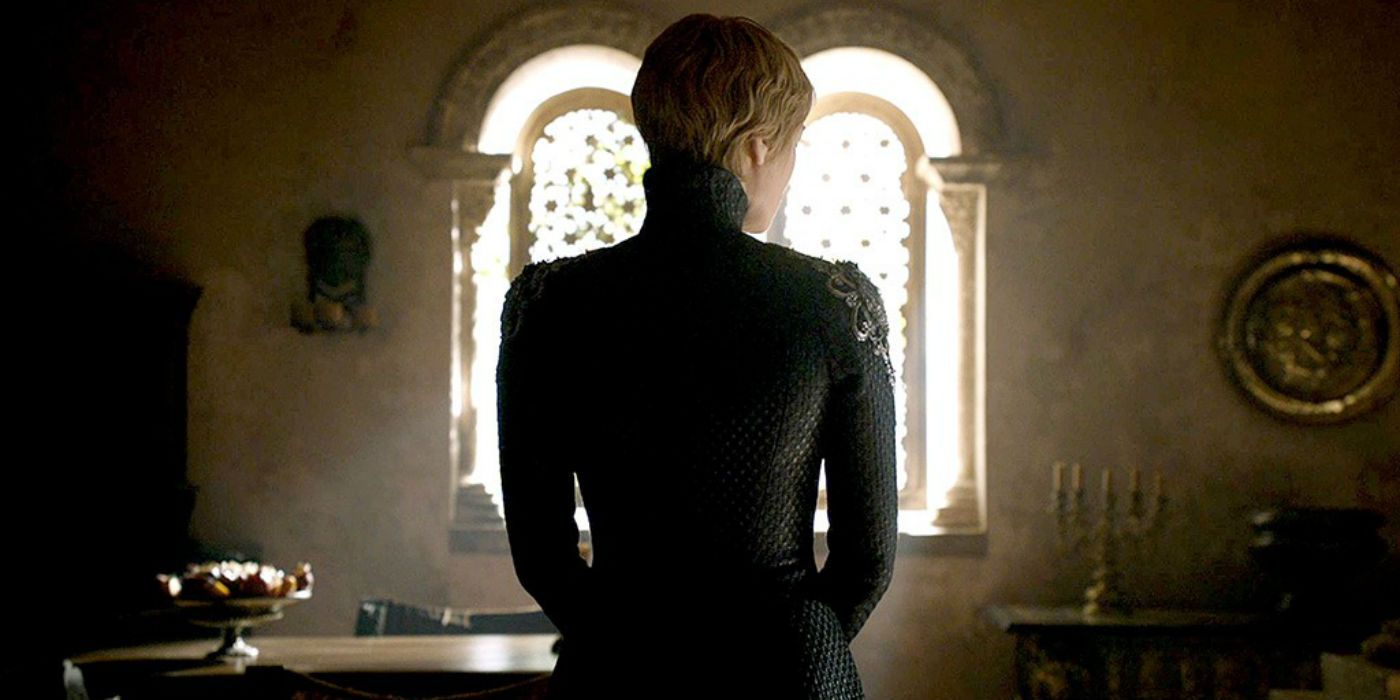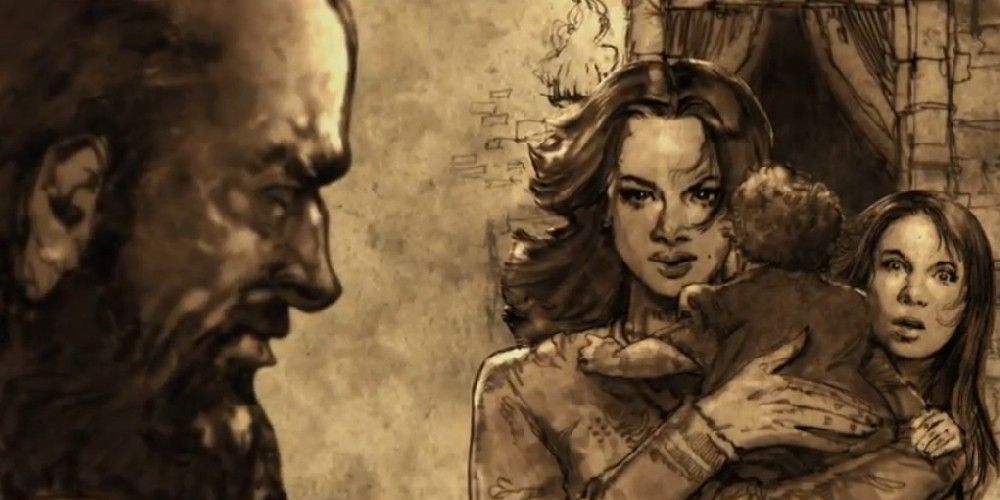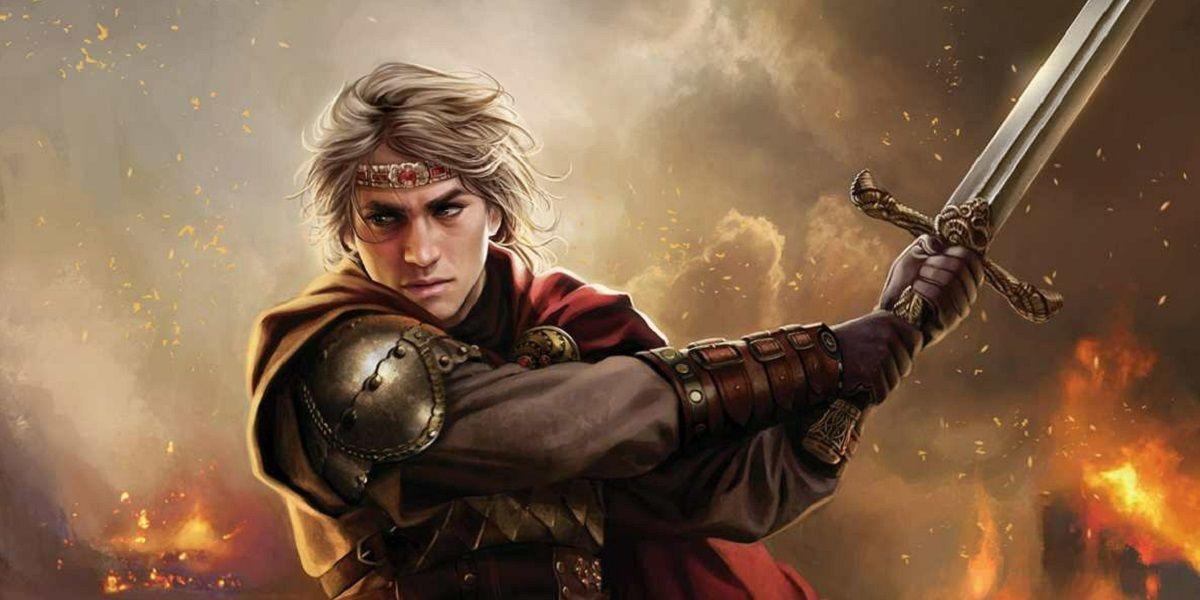If there’s one thing Game of Thrones is never short on, it’s characters. We’re just over a season away from the end of the series, and though the playing field is narrowing as all sides converge on the Iron Throne, it still seems like there are more characters and subplots than anyone could hope to keep perfect track of. For fans who have only watched the TV series, it’s even more nerve wracking to think of all the characters from George R.R. Martin’s books that either lived long before the events of the show, or were written out of the show entirely.
Game of Thrones is always full of surprises, and probably will be up until its final moments, but we’re definitely at the point where we have a good idea of which key figures we will and won’t be seeing. It’s less likely, for instance, that we’ll see a flashback featuring the people of Valyria or Nagga the Sea Dragon (unless, of course, we see them in one of the endless proposed spin-offs HBO has in the works). But that doesn’t mean there aren’t subsidiary characters that aren’t worth knowing about moving forward. Here are the 15 Most Important Game Of Thrones Characters You’ll Never See In The Show.
Honorable Mention: Rhaegar Targaryen
The eldest son of the Mad King, Rhaegar Targaryen still stands a reasonable chance of showing up before GoT comes to an end. As the secret father of Jon Snow, he plays a pretty pivotal role in the very events that Bran went back in time to witness at the end of Season 6. Bran’s flashbacks have been relatively scarce—only hinting (however strongly) at key plot points without spelling everything out entirely. That could definitely mean a no-show from Rhaegar, but it could also mean we’ve been building up to a showstopping appearance the next time Bran goes full three-eyed-raven. In the end, we really won’t know until we know, so Rhaegar gets an honorable mention here.
Before Robert’s Rebellion, Rhaegar was the tall, handsome prince of the Iron Throne, beloved by his subjects and well known as a valiant renaissance man. He was married to Elia Martell, but he declared Eddard Stark’s sister Lyanna the Queen of Love and Beauty at the Tourney of Harrenhal and subsequently abducted her—an action that seemed to clash with his good reputation. While his motives for kidnapping and conceiving a child with Lyanna remain a mystery, the birth of his bastard son make him one of the most influential figures in the Song of Ice and Fire.
Lady Stoneheart
Game of Thrones has a long list of characters who have been resurrected from the dead (there’s a whole army of them if you count the white walkers). From the Brotherhood without Banners' Beric Dondarrion to everyone’s favorite bastard-turned-king-in-the-north Jon Snow, Westeros is full of key characters who cheated death—none more infamous than Lady Stoneheart.
The vengeful zombie version of Catelyn Stark, Lady Stoneheart has become one of the ASOIAF series’ most legendary creations, largely due to the droves of fans who had been anxiously awaiting her onscreen debut since Catelyn’s murder at the Red Wedding. But after Season 6 ended with no sign of the resurrected matriarch of the North, it’s become clear that Lady Stoneheart is destined only to live on in the eager imaginations of bloodthirsty fans--and in the vengeful missions undertaken by her daughter, Arya.
Joramun the King-Beyond-the-Wall
Joramun is a central figure in the history and lore of the North. When the Night’s King—a former Lord Commander of the Night’s Watch—declared himself ruler north of the Wall, Joramun rallied the free folk together in revolt against him. With the help of Brandon the Stark King of Winter, Joramun defeated the Night’s King and also woke the giants from the earth with the horn of winter.
Joramun’s alliance with House Stark was a groundbreaking move. It proved that the wildlings could join forces with people south of the Wall when facing a common enemy. And now that the free folk have joined forces with Jon Snow’s northern kingdom against the impending doom of winter, we’re seeing history come full circle in the best way possible.
Jon Connington
Jon Connington is one of ASOIAF’s most intriguing secondary characters. A loyal servant of the Targaryens during Robert’s Rebellion, Connington’s fall from grace begins with a harrowing defeat in battle with Robert Baratheon, and ends after a long, difficult exile in Essos, where he is believed to have drunk himself to death. It'd be a pretty big bummer of an arc, except that he's totally not dead, and he's actually escorting a boy that may be the natural born son of Rhaegar Targaryen around Essos. (More on that later.)
Connington’s tale of exile is full of colorful moments and intriguing subplots. Unfortunately, he is one of many characters from the books whose story was given to someone else in the show. Remember how Jorah Mormont caught greyscale after fighting it out with some stone men? Yeah, that was Jon Connington who unwittingly sacrificed himself for Tyrion in the books. And as far as we know, he never got that last-minute miracle operation in the Citadel.
Strong Belwas
One of the most beloved characters from the books, Strong Belwas was the biggest and baddest warrior to serve in Daenarys’ Queensguard. Belwas was a former slave who cut his teeth in the fighting pits of Meereen. His colossal stature and signature features (like the scars all over his body from the cuts he allows his opponents to make before he kills them) make him an extremely intimidating presence, and one that would have been great to see fully fleshed out on screen.
Book fans still mourn Belwas’ absence from GoT, and for good reason. In the books, Belwas was both physically impressive and memorable for his humorous dialogue (some of which was given to Daario in the series), and would have made a great foil for other members of the Khaleesi crew in the show. His Meereen slave origins also serve as an introduction to Meereen, and would have served the show’s plotting well when it came time to introduce TV audiences to the region.
Wyman Manderly
Another fan-favorite from the books, the Lord of White Harbour will likely never be seen by TV audiences in a form remotely resembling the source material. (He appeared briefly in one episode of season 6, where he was played by Sean Blowers.) But book Wyman Manderly’s knack for strategy and sabotage matched the likes of Tywin Lannister and Petyr Baelish, and his portly stature seemed to curb suspicions quite effectively.
Much of Manderly’s story in the books involved a slow-burning revenge plot against the Freys and Boltons after the Red Wedding. It’s unfortunate that GoT writers couldn’t find room for him in the show, as his devious strategizing, unique personality, and loyalty to House Stark would have given audiences a reason to remain more invested in the plight of the Northern families. Luckily, Jon Snow and Sansa Stark have already taken Winterfell back from the Boltons, and we’ve got Arya back in Westeros to reign faceless terror down on everyone from her hit list (that is, if she doesn’t get too distracted by the idea of killing her big sister.)
Bran the Builder
The Age of Heroes casts a long shadow over everything that follows in the GoT timeline. Much of the history from this time is too ancient to be considered more than legend, but some physical remnants from the era remain. The most important of these remnants is the great Wall, built by none other than the founder of House Stark himself—Brandon Stark aka Bran the Builder.
Brandon Stark was a prominent member of the First Men, taking control over the North after a thousand years of war in the region. He constructed Winterfell as the ruling castle of the North, and with the help of Giants, he raised the Wall. Were it not for him, winter may very well have come to Westeros a whole lot earlier.
Tytos Lannister
As the Lord of Casterly Rock and father of Tywin, Tytos Lannister was hugely important in shaping the fate of Westeros, albeit in an unflattering way. Much of what made Tywin Lannister the most powerful man in Westeros (for a time) was in direct opposition to the man his father was. As Tywin told Arya Stark in season 2, “[My father] loved us. He was a good man. But a weak man... a weak man who nearly destroyed our House and name."
As head of House Lannister, Tytos did nearly ruin the family name for good. His kind demeanor did not make up for his lack of financial prowess, and even contributed to him being frequent mocked from his courtly peers. When Tytos’ weaknesses led to a revolt against his house, Tywin single-handedly crushed the rebellion and learned quickly from his father’s mistakes. What doesn’t kill you makes you stronger, and in the end, the follies of Tytos Lannister led his posterity to take the Iron Throne.
Victarion Greyjoy
The Greyjoys are one of many families in Game of Thrones to have their story truncated. Since we were only introduced to Euron Greyjoy at the end of Season 6, his younger brother Victarion doesn’t really stand a chance of being brought to life by HBO. But that doesn’t mean he isn’t a pivotal figure in the dark, violent saga of the Ironborn.
In ASOIAF, Victarion is the Lord Captain of the Iron Fleet. Aboard his flagship the Iron Victory, he’s a great and terrible presence on the high seas. But despite his impressive stature and even more impressive armor, Victarion always bowed to the wrath of his brother Euron (even when his baby bro seduced his wife). He may have justifiably been axed from the show to save time, but Victarion’s troubled relationship with Euron adds further dimensions to the already sordid Greyjoy family dynamic.
Lann the Clever
Among the many imposing figures of the Age of Heroes lore, none stand out more than Lann the Clever, founder of House Lannister. Because he’s a beloved figure among singers and storytellers, it’s hard to pin down Lann’s true origins. Some say he is one of the First Men, while others attribute much more colorful origin stories to the famous adventurer. In nearly every case, though, Lann is said to have taken control of Casterly Rock through impervious wit and cunning, securing a prosperous future and enviable legacy for his family.
Much of what makes the Lannisters such formidable foes is owed to the legend of Lann the Clever. In addition to setting a high standard of strategy and street smarts, Lann is said to have had hundreds of beautiful children (all blessed with his signature blonde locks), instilling in future generations a deep reverence for the Lannister name.
Arianne Martell
If there’s one thing every die-hard GoT fan can agree on, it’s that the show really screwed up the Dornish storyline. Not only that, it left one of Dorne’s coolest characters completely out of the picture. Arianne Martell—daughter of ruling prince Doran—could easily have been one of the show’s most promising characters. Both sly seductress and calculating social manipulator, Arianne is arguably the smartest and most cunning Martell that Dorne ever saw.
After a failed betrothal to Viserys Targaryen, Arianne is forced to look elsewhere for a path to greater prosperity. Once Myrcella Baratheon is promised to Prince Trystan Martell, Arianne hatches a scheme to claim the Iron Throne for Myrcella under the pretense of a Dornish law that grants ruling power to a sister over a brother—thereby gaining huge influence over the Seven Kingdoms. It’s one of the most interesting vies for power in the whole book series, which is why her absence in the show’s Dorne-centric events remains a total blunder.
Jeyne Poole
We all felt pretty darn bad for Sansa Stark in season 5. Her abusive marriage to Ramsay Bolton remains one of the most controversial and downright traumatizing plotlines of the series. Had the show followed the books more precisely, Sansa could’ve avoided the situation altogether. Unfortunately, Ramsay’s marital massacre would have just been inflicted on another party: Sansa’s childhood best friend, Jeyne Poole.
In ASOIAF, Jeyne Poole poses as Arya Stark and marries Ramsay. Her plight is every bit as terrible as Sansa’s was in the show, and like Sansa, she is rescued from Ramsay’s clutches by Theon. Giving Jeyne’s narrative arc to Sansa was actually a brilliant move on the part of GoT showrunners. It gave Sansa a clear direction and strong character development. And perhaps it's better to give the story to Sansa than inflict all the Bolton carnage on Jeyne, who seems to exist in the books solely as a deflective shield for the Stark girls.
She supposedly appeared in the pilot episode of the HBO series, but you'd be forgiven if you missed her wordless cameo.
Brandon Stark
The older brother of Ned Stark was a hugely important figure in Robert’s Rebellion. Both his actions and fate set the stage for virtually everything that would come in the years after Robert took the Iron Throne, and his absence is clearly an influential force in the life of his brother Ned.
Brandon was the eldest son and heir of Rickard Stark. He was originally betrothed to Catelyn Tully, and was forced to defend Catelyn’s honor in a duel with Petyr Baelish. Had Brandon not won the duel before his untimely death at the hands of the Mad King, Catelyn might not have married Ned and given birth to arguably the most influential generation of Starks that ever lived. Who knew that nearly disemboweling Littlefinger would have such long lasting consequences?
Joanna Lannister
On the surface, the deceased mother of Jaime, Cersei, and Tyrion may not seem like a hugely important character, but she’s the central figure in a longstanding fan theory that, if true, may drastically change the course of the series.
We all know Joanna died giving birth to Tyrion. Her death is the driving wedge between the world's most famous dwarf and his father, and it alienates Tyrion from his two older siblings (especially Cersei). But what if there’s more to that alienation than meets the eye? What if Tywin is not actually Tyrion’s father at all? And what if he's actually a Targaryen?
There are quite a few details that support this theory, such as Tyrion’s natural rapport with Daenerys’ dragons, or the fact that Aerys Targaryen was infatuated with Joanna when she married Tywin. Until the series comes to an end, there’s no way of proving or disproving this theory, and the mystery remains with the late Joanna.
Aegon Targaryen (Son of Rhaegar)
There’s a lot of awkward tension between Ned Stark and Robert Baratheon in season 1. Their rebellion wasn’t a clean one, and it forced them both to take responsibility for some nasty actions, and one of the most brutal was the slaying of Rhaegar Targaryen’s wife and children.
Aegon was the son of Rhaegar and the heir to the Iron Throne. After Robert killed Aegon’s father, Ser Gregor Klegane (aka the Mountain) slaughtered Aegon and his mother in the infamous Sack of King’s Landing. It’s a dark moment in Robert’s Rebellion that Ned Stark still regrets in season 1. Though only influential in death, Aegon’s ghost looms large over those responsible, and his absence paves the way for the remaining members of the Targaryen line (Daenerys and Jon Snow) to vie for the Iron Throne.
Book readers know that the character may actually be alive in the books, traveling under the guise of Young Griff alongside his protector and surrogate father, Griff, aka Jon Connington. The fact that the show chose not to adapt that particular storyline at all is pretty telling to the likelihood that the boy is an imposter, and that Rhaegar's eldest son was in fact killed at the end of Robert's Rebellion. Book readers must have loved that (likely) spoiler.
Aegon the Conqueror
No one person is more influential in the history of Westeros than Aegon the Conqueror. Aegon created the Targaryen dynasty, becoming the first person to conquer and rule over nearly the entire continent. Aegon’s Conquest is so influential, in fact, that the proceeding years in time are marked by it (AC for Years after Aegon’s Conquest).
One could argue that the only reason Daenerys has any legitimate claim over the Iron Throne is that her family’s dynasty endured for so long. After all, every dynasty begins with a hostile takeover. Who's to say that Daenarys’ claim to the throne is any more legitimate than, say, Stannis Baratheon’s? Were it not for the historical significance of Aegon’s Conquest, Daenerys would likely be just another bit player in the game of thrones.
--
Game of Thrones is full of important characters that couldn’t possibly be contained in one show, or even one list. Who are some of your favorite characters we haven’t seen in the show? Let us know in the comment section.

